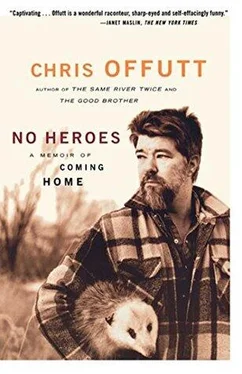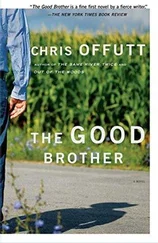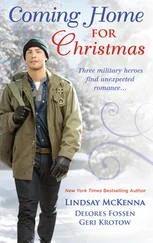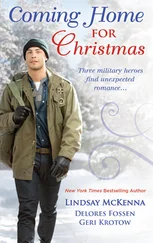I think reading Maus is a good way for Sam to understand history. Later I’ll explain that his grandparents were mice. Every couple of pages Sam asks a question. I decide to sit across the room and transcribe our conversation in the same manner as when talking to Arthur on the phone.
“How do you know you’re a Jew?” Sam says.
“Because your mom and dad are Jews.”
“Know what I’d do? I’d tell people I’m not a Jew.”
“Some people did that.”
“I’d leave.”
“Some did that, too.”
“What’s a dictator?” Sam said.
“A boss with an army who makes people do what he wants.”
“That’s stupid.”
“Why?” I said.
“Because you couldn’t say he was a bad boss, right?”
“That’s one of the problems all right.”
“Did all the Germans hate the Jews or did they just do what Hitler said?”
“A little of both.”
“Why didn’t they kill him?”
“Who?”
“This guy in here, the little mouse guy. They knew he was a Jew and it was World War II. So why didn’t they kill him? I mean, these people had the power to kill him and they hated him. So why not?”
I shrug and he goes back to reading. His grandfather has pondered the same question every day for fifty years. Arthur craves a reason for his survival. Irene admits the truth more readily than her husband. She says survival was random and she was lucky, but Arthur doesn’t want to believe it is that simple.
Sam goes into the other room and James sits in the same chair — my chair — and opens Maus. He cannot read but he studies the pictures very carefully. He is five years old and wants to be an artist when he grows up.
“Why is this comic book in black and white?” he says.
“Why do you think?”
“Because it was made before color.”
After a few minutes, James brings the book to me. He points to a scene of mouse prisoners and cat captors. One prisoner has been promoted to the boss of other prisoners, what Arthur called the Jewish Police. He is drawn with the face of a pig.
“Is this guy a pig?” James asks.
I tell him yes and he wants to know why. I wonder how to explain the cultural metaphor of a pig as a cop. I tell James the guys a pig because the cat and mouse faces were already used. That satisfies him and he returns to the chair, and finds a large word in a dialogue balloon. He carefully spells the word, as he has heard his brother do.
“What does a-a-w-o-o-w-a-h!’ mean?”
At my request James repeats the spelling. I figure it is the sound of a siren and tell him so, but he says it’s not. He shows the picture to me. The word in question is the wailing of a Belgian Jew who knows he’ll be killed in the morning. I tell James it means the mouse is sad. Eventually James concludes that the mice are going to jail for not wearing their hats.
At supper, Sam is still thinking about Maus. He is a serious boy, prone to prolonged pondering. He wants to be a scientist when he grows up.
“I’m glad there was a Hitler,” he says.
“Why?” I say.
“Because if he hadn’t lived, Grandma and Grandpa wouldn’t go to New York and have Mommy. Then you wouldn’t have met her. And there’d be no me. I have to be glad, see?”
I stare at him, awed by the practicality of his logic. He is an implacable child, a careful thinker. For me to present a counterargument is to attack his very being, deny his existence in the same way the Nazis tried to deny the Jews.
Rita and I decided to picnic in my hometown of Haldeman with sandwiches and bottles of cold L-8, Kentucky’s only native soft drink. Its official name is Ale-8-1, or “a late one,” because it arrived on the market after Coca-Cola. L-8 is affectionately called swamp water or mule piss, and must be drunk cold from a long-neck bottle clamped between your thighs while driving.
I drove the Malibu with my left arm draped out the window in true country style. A large sign proclaimed the future site of a country club and an exclusive golf community. Trees were cut down and roads laid out. New houses clung to denuded slopes as if dropped from the sky. The entire enterprise reminded me of a trailer court for the affluent. “HickorY PointE,” proclaimed a sign in large letters. If you squinted, they formed a new word— HYPE.
In Morehead I pointed out to Rita where I’d bought my first bike and shot my first game of pool. I know the eight miles between town and Haldeman better than I know the face of either of my sons. I know the shadows of the land, the stone outcroppings high on the hillside, the silhouette of the tree line at dusk. As we drove, I gave Rita a running commentary on the road — the two straight stretches where you could pass a slow car, the tobacco warehouse, the turn up Christy Creek where the old drive-in movie theater was built on a landfill. Now it’s gone and a new grade school sits there. I stopped at Big Perry Road and told her about the school bus wreck. Farther on was Little Perry Road, a long dead-end hollow that followed a creek in classic Appalachian style.
The sky was so crisp and taut you expected it to snap in the wind. The leaves of a silver maple turned their bellies to the breeze and the tree looked covered with snow. We passed Gates, a community reduced to a railroad whistle post. At Hay’s Branch I made the turn to Hay’s Crossing, and showed Rita where a bunch of us boys once swam naked in a shallow muddy pool. One of us cut his foot on glass. A boy threw someone’s shoes into the water. Somebody cried and somebody got mad. I couldn’t remember which boy I had been.
It was not the land that Rita enjoyed, nor the stories of my past, but the Malibu. The throbbing engine thrilled her. She loved its speed and power. She sprawled luxuriously in the front seat, and said she’d lived in New York apartments that were smaller. The term muscle car came from the tremendous horsepower harnessed beneath the hood of cars in the late sixties and early seventies. Manufacturers in Detroit upped the ante until they were putting race cars on the street — Chevelle, GTO, Charger, Barracuda. Rowan County muscle cars were jacked up in the back with mag wheels. Large speakers sat in the rear seat wired to eight-track tape players bolted beneath the dash. A roach clip on a feather hung from the rearview mirror. Some drivers draped a flag in the back window — a Jolly Roger, the Stars and Bars, Kentucky’s seal of the Commonwealth, a peace sign, or a giant marijuana leaf. People held drag races in Haldeman and across the county in the community of Farmers. Cars would burn rubber and fly low. Lucky boys drove them to high school, where everyone admired each other’s ride in the parking lot. I rode the bus from farthest out in the county. I didn’t own a car and the family rig was a yellow Volkswagen squareback that was severely embarrassing.
We sped past the ball diamond and voting house in the widest spot between the creek and the road. This was Haldeman proper — the woods, two hollows, a creek, three hills, and dirt roads connected by animal paths. To reach a neighbor’s house by car meant driving out your ridge and off your hill, following the creek to their hill, driving up it to their ridge. Walking through the woods was much quicker. Fifty years ago, the company store became the Haldeman post office, its flag fastened permanently to a pole that the postmaster, Avanelle Eldridge, carried outside every morning and belted to a fence post. At night she moved the flagpole inside. During winter, Avanelle heated the post office with a woodstove, until the government closed the facility.
At the top of the next hill was the county line, where the bootlegger sold beer, wine, and whiskey. His shack was abandoned. I bought my first whiskey there, saying it was for my father. I eased the big Malibu around the building, and made the turn toward Molten Hollow.
Читать дальше












